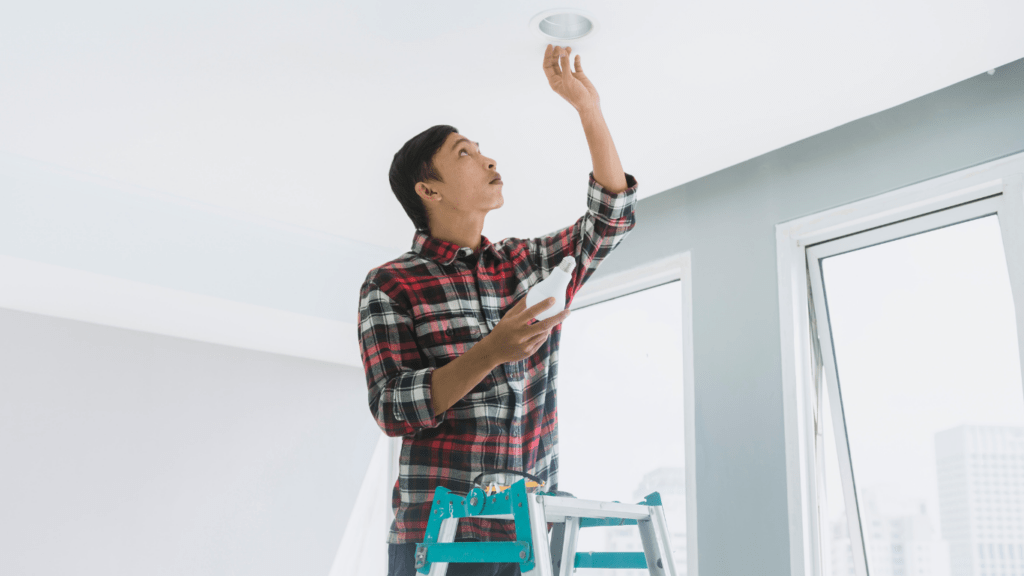Whether you’re a first-time homeowner or a seasoned property investor, there’s no denying that putting time and effort into your space pays off. Understanding why home improvement is important mintpalhouse isn’t just about aesthetics—it’s about value, safety, and function. If you want a practical take on this topic, check out this detailed exploration of the topic, which breaks down the reasons your home should never sit in maintenance limbo.
More Than Just Looks: Functionality Comes First
Most people think of home improvement as repainting a room or updating a kitchen backsplash. Sure, those things matter. But the real reasons why home improvement is important mintpalhouse often start deeper—beneath the surface.
Old wiring, outdated plumbing, inefficient HVAC systems—these are not the glamour projects for Instagram reels, but they keep your home livable and safe. Upgrades to these essential systems reduce the risk of breakdowns or hazards and can save you thousands in emergency repairs later on.
Even more, energy-efficient upgrades like better insulation, high-efficiency furnaces, or smart thermostats can cut your monthly utility bills dramatically. That’s function and cost savings rolled into one solid investment.
Increased Property Value for the Long Game
Your home is probably one of the biggest investments you’ll ever make. So it’s smart to think about return on that investment. Regular improvements maintain and often boost property value.
Imagine trying to sell a house with cracked tiles, leaky faucets, or outdated fixtures. Now compare that to one with a modern kitchen, upgraded floors, and a freshly painted facade. Buyers notice.
Consistent upgrades also make appraisal processes smoother and values stronger, helping you access more equity or qualify for better financing terms. It’s another layer in why home improvement is important mintpalhouse—you’re not just spending money, you’re building long-term wealth.
Creates a Safer Environment
Neglected homes often hide dangerous conditions. Loose railing on stairs, poor lighting, or rotted floorboards aren’t just annoyances—they’re safety hazards.
Home improvements can eliminate risks by bringing your home up to current codes and standards. Especially if you’ve got aging family members or small kids in the household, minor changes can prevent major accidents.
Smart safety upgrades like slip-resistant flooring in bathrooms or motion-sensor lighting around entrances are good examples. A place that looks good and keeps people safe? That’s improvement with real purpose.
Tailoring Your Space to Fit Your Life
Home isn’t just where your stuff lives—it’s where your routine happens. The beauty of home improvement lies in designing spaces to support your day-to-day flow.
Need a functional home office because you’re remote four days a week? That’s not a luxury—that’s a necessity. Want an open-concept layout because you host family every weekend? Totally valid.
Customization through renos, built-ins, or space repurposing can make your home respond better to your needs. A shapeless guest room becomes a gym. A dark corner turns into a reading nook. You’re improving not just the home, but how it fits your life.
Sustainability Through Smart Upgrades
One of the quieter angles in why home improvement is important mintpalhouse is its environmental impact. The construction industry is leaning greener, and so can your home.
Eco-friendly modifications like solar panels, water-efficient fixtures, or reclaimed wood floors reduce waste and resource use. They make your home perform better while using less, and buyers increasingly look for homes that match their green values.
Not everything has to be solar-powered from day one. Start small: swap old lightbulbs with LEDs. Use low-VOC paints. Install a low-flow showerhead. These modest changes add up—and make you feel good about the footprint your home leaves.
Let’s Not Forget Mental Health
This might sound touchy-feely, but it’s true: better homes can boost better moods.
Clean, functional, nicely-designed spaces reduce daily friction. A clutter-free layout makes movement easier. A color scheme that reflects your style calms the mind. An organized kitchen makes meals smoother.
Improving your living environment supports your mental well-being. That doesn’t always mean tearing down walls. Sometimes it’s as simple as adding better lighting or reorganizing your shelving. Your home should lift your mood, not drag it.
Routine Maintenance Is a Form of Improvement
Not every improvement project comes with TikTok-worthy before-and-after shots. Sometimes it’s as dull as replacing a sump pump or resealing your driveway. But these count.
Preventative maintenance lengthens the life of your home’s systems. Tackling small fixes now helps you avoid major issues later. As any experienced homeowner will tell you, delayed maintenance always costs more.
So if you patch that leaky roof today, your attic thanks you next storm season. If you fix that sticky door now, you might prevent a full-doorframe warp later.
A Smart Way to Stay Competitive
If you’re in a neighborhood where properties are regularly upgraded and maintained, a neglected home will stick out—in a bad way. Competitive curb appeal keeps your home in line with market standards.
This doesn’t require over-the-top renovations. A fresh coat of paint, an upgraded mailbox, and trimmed landscaping do the trick. It’s not about being the flashiest—it’s about being presentable.
Staying reasonably modern and respectable ensures that if—and when—you choose to sell, your home won’t feel dated next to the comps down the street.
Final Thoughts
The reasons why home improvement is important mintpalhouse are practical, financial, and deeply personal. Home improvements safeguard your investment, support your lifestyle, and provide peace of mind. Whether you’re tackling big projects or small upgrades, every step makes your home work better—for you and for the future.
Start where it makes the most impact, align upgrades with your life, and stay consistent. It’s never about making a perfect home. It’s about making your home a better place to be.



